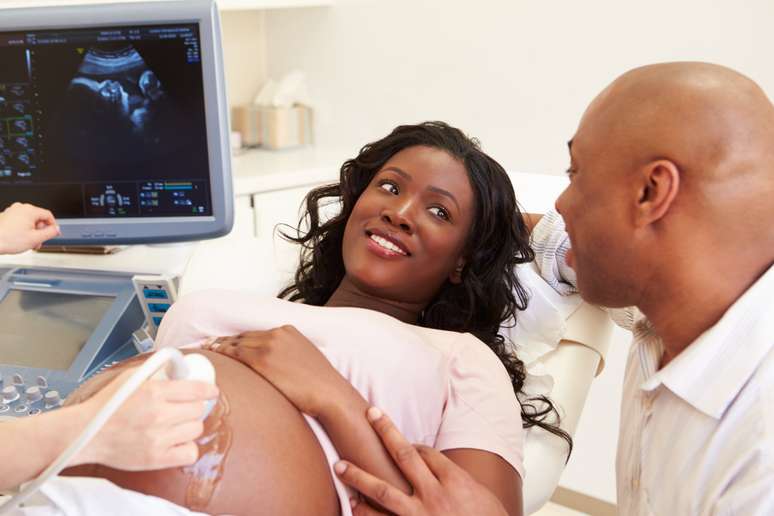Reproductive medicine specialist lists the attitudes that must be taken by the couple to improve the chances of a pregnancy
In recent years, changing habits has become extremely important for maintaining health and avoiding disease, especially during and after the coronavirus pandemic. The way we lead our lives is known to interfere with the functioning of our bodies; however, many people don’t realize that they also directly affect fertility, either to harm it or to increase it.
html[data-range=”xlarge”] figure image img.img-65cb58467ed94a202106c31b8e360051qfov355i { width: 774px; height: 516px; }HTML[data-range=”large”] figure image img.img-65cb58467ed94a202106c31b8e360051qfov355i { width: 548px; height: 365px; }HTML[data-range=”small”] figure image img.img-65cb58467ed94a202106c31b8e360051qfov355i, html[data-range=”medium”] figure figure img.img-65cb58467ed94a202106c31b8e360051qfov355i { width: 564px; height: 376px; }
Currently, more and more men and women are giving priority to professions, choosing to be late parents. The biological functions of the reproductive organs have fundamental actions for the success of a healthy pregnancy, and conditions such as age and good habits are also important for this event.
When to see a doctor
According to the master of reproductive medicine Dr. Matheus Roque, scientific director of Mater Lab and Mater Prime, if, after a year of trying, the couple who has not been able to get pregnant despite frequent sexual intercourse, should seek medical attention. In the case of women over the age of 36, it is advisable to carry out a couple evaluation after 6 months of unsuccessful attempts.
For dr. Matheus Roque, these signs indicate infertility, a disease that affects 8 million people in Brazil and, according to the World Health Organization (WHO), 186 million people worldwide, representing 15% of the entire population.
Causes of infertility in women
In about 10-15% of couples who have infertility, no cause has been found for the condition. Of the couples who find out, one-third are related to male factors, one-third to female factors, and the rest to an association of these factors. The main causes of female infertility are divided into: alterations of the tubes, ovulation or uterus, endometriosis and the woman’s age.
“Currently, a very important factor has to do with age. Women are increasingly delaying pregnancy, reducing the chances of pregnancy and increasing the risk of miscarriage. This is due to a decrease in the number of eggs with the advancing the age of the woman. “, underlines Dr. Matteo Rocco.
Causes of infertility in men
Most of the factors associated with male infertility are unknown, followed by varicocele, hypogonadism, urogenital infections, among others. The spermogram is a primary test in the evaluation of marital infertility.
“The spermogram must be performed after an abstinence period of 2 to 7 days, according to the recommendation of the WHO (World Health Organization). It is also important to underline that the test is not a certificate of infertility or sterility, but serves to direct what is the best form of treatment for the couple”, points out the doctor.

Habits that promote fertility
Prioritizing some healthy habits is also an important requirement that can help preserve the fertility of both men and women. So, meet some of them below!
1. Good food
Good health depends on how people eat. To increase fertility, the recommended foods are those that help produce hormones related to sexuality. Including a wide variety of fruit and vegetables on the menu, in addition to foods rich in omega 3 and selenium, such as fish, eggs and seeds, is essential for health, because it produces fatty acids that take care of the reproductive organs.
2. Avoid alcoholic beverages
Alcohol consumption can interfere with male fertility by impairing sperm production, lowering testosterone levels and causing erectile dysfunction. Women who are trying to get pregnant should also avoid consuming this type of drink, as the effects of alcohol consumption remain in the body for a time after ingestion and can cause problems during pregnancy.
3. Avoid smoking
Cigarettes directly interfere when it comes to female and male fertility, as it alters the amount of eggs and sperm; therefore, she is advised to quit smoking to preserve fertility and get pregnant.
4. Avoid caffeine
Caffeine is present not only in coffee, but also in teas and soft drinks. Its excess consumption, in women, affects the production of ovules, modifying hormone levels, as well as in men, reducing the production of sperm and reproductive hormones.
5. Maintain ideal weight
Being underweight or overweight can decrease the chances of pregnancy. Studies show that it is more difficult for women to get pregnant when they are very thin or overweight; and the latter factor can cause hypertension or gestational diabetes.
In men, weight affects sperm count and quality. Additionally, excess body fat can interfere with reproductive hormones, which impairs egg fertilization.
6. Exercise
Practicing physical exercises helps improve blood flow and oxygen delivery to the reproductive system. Exercising also helps avoid problems like obesity and diabetes, which affect infertility.
“Including physical activities in your routine, engaging in at least 30 minutes a day, helps support the health of not only the reproductive organs, but the entire body, mind and well-being,” concludes Dr. Matthew Rocco.
By Carolina Ribeiro
Source: Terra
Ben Stock is a lifestyle journalist and author at Gossipify. He writes about topics such as health, wellness, travel, food and home decor. He provides practical advice and inspiration to improve well-being, keeps readers up to date with latest lifestyle news and trends, known for his engaging writing style, in-depth analysis and unique perspectives.









